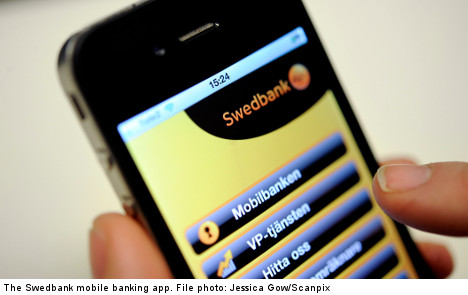The Riksbank said that while the banks in Sweden were doing well, they needed “more resilience” in the long-run as developments in the crisis-hit eurozone still posed a great threat.
“The major banks are highly resilient to a weaker economic climate in the short term, but there are vulnerabilities in the structure of the Swedish banking system that may have a negative impact on financial stability in the longer term,” the Riksbank said in a statement issued on Monday.
The central bank said that previous recommendations that the bigger banks have access to enough capital had been heeded, but that the banks should take further measures.
SEE ALSO: Get the latest exchange rates and transfer money on The Local’s Currency page
“The Riksbank therefore recommends that the major banks continue to ensure they have adequate capital and liquidity, and that they improve their public liquidity reporting.”
The major Swedish banks Handelsbanken, Nordea, SEB and Swedbank are all still making profits despite the turbulence and are well-capitalized compared to many other European banks. Their strong position has ensured continued access to market funding in both the krona and other currencies.
On the horizon, however, the threat of loan losses looms if the recession continues much longer, which would cool down the financial markets, with effects for the banks but also Sweden as a whole.
“Moreover, the banks may experience greater difficulty in obtaining access to market funding. Swedish housing prices may also fall if Sweden is hit by a prolonged economic slowdown,” the statement continued, citing Swedes’ high level of household indebtedness as a concern.
Any decline in consumption would take a swipe at Swedish growth figures, with the potential effect of companies in Sweden having problems with covering their day-to-day costs.
The set-up of the banks themselves could also contribute to a financial slump, the Riksbank noted.
“The banking system is large in relation to the Swedish economy and strongly interlinked, which means that a financial crisis could also require government intervention and thus become costly for taxpayers.”
In order to protect against liquidity risks, the major Swedish banks should start reporting any structural weakness in accordance with the definition in the Basel III Accord, the Riksbank recommended.
The Local/at



 Please whitelist us to continue reading.
Please whitelist us to continue reading.
Member comments